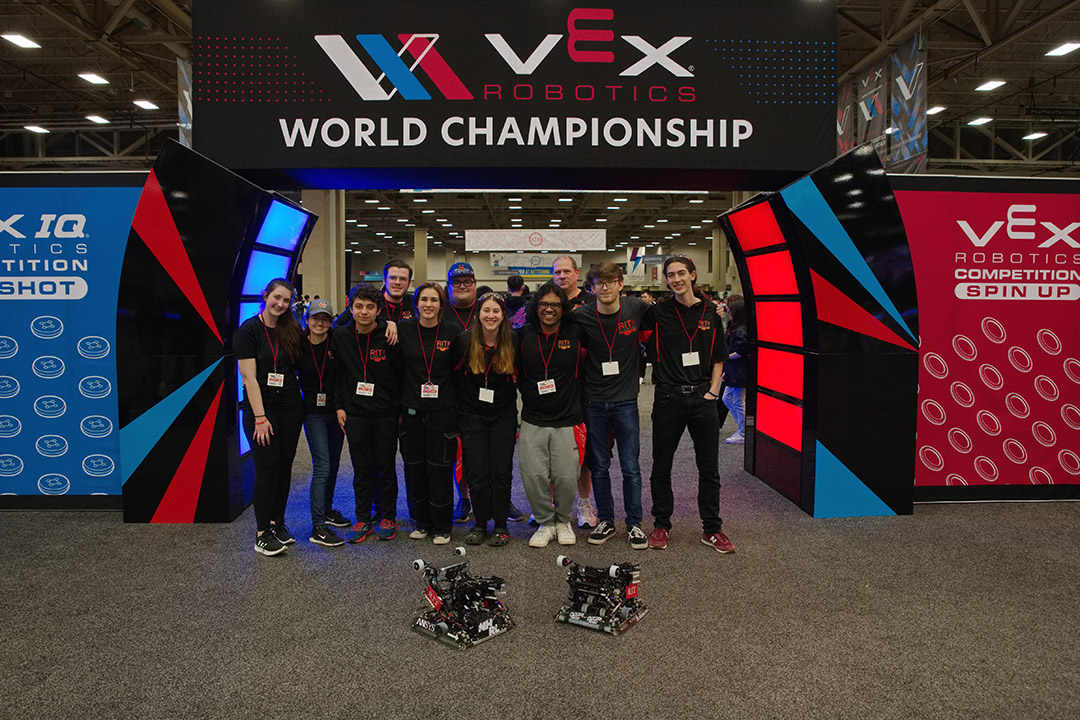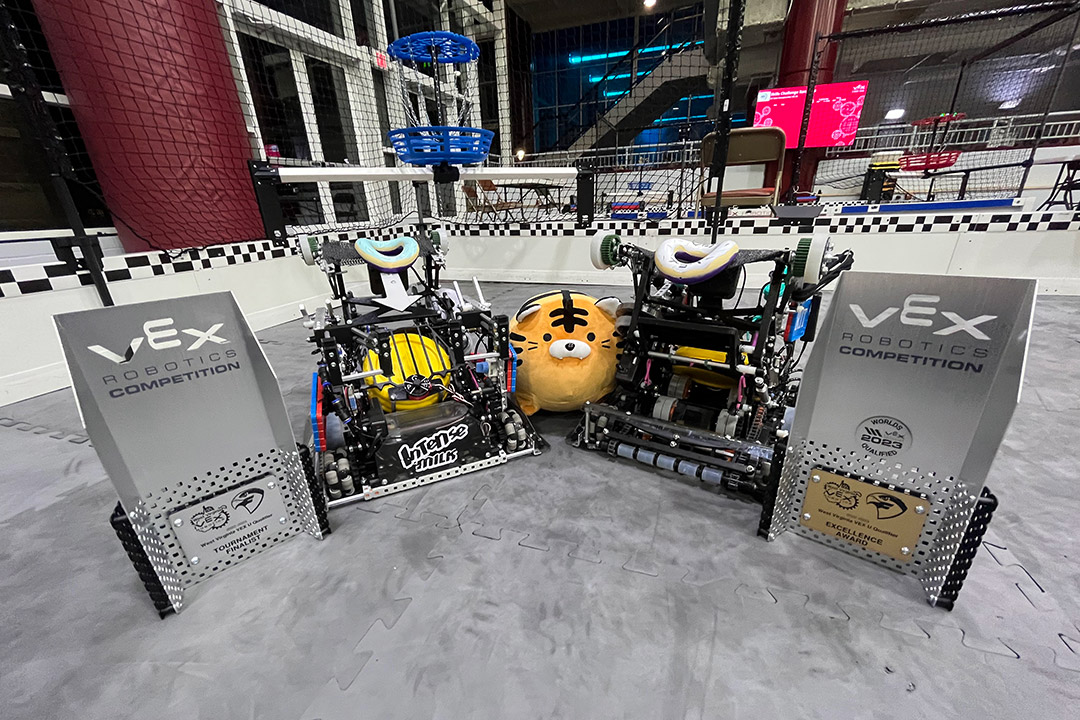VEX Robotics team places in top 10 at international competition
Collegiate team recognized for seasonal wins and team awards for outstanding robotics program
Provided by S. Ferguson
Students on the RIT VEX Robotics team that placed 10th overall at the VEXU World Championship recently are (front row, left to right) Allison Kunin, Brianna Vottis, Joe Saso, Zoe Rizzo Stefany Ferguson, Aniket Sonika, Owen Gormley, and Richie Sommers. (Back row) Ryan McGee, Victor Rabinovich, and Chris Brown (faculty advisor).
RIT’s VEX Robotics team placed 10th overall among 96 collegiate teams in the recent VEX Robotics World Championships in Dallas. Teams competing in the championship came from U.S. universities from Alaska, Oregon, and California as well as international teams from Columbia, Mexico, China, Puerto Rico, and Australia.
Provided by S. Ferguson
Two of the robots used by RIT VEX Robotics and two of the recent awards presented to the team for qualifying for the 2023 Worlds and for overall program excellence.
Closing a strong 2023 season, the team was also recognized for excellence in technical designs and the overall quality of its program.
VEX Robotics at RIT has grown significantly since it began in 2017.
“Our early years, it was about building the team, understanding how we were going to run a club. We spent time recruiting people with the different disciplines needed, so we have some really talented individuals,” said Stefany Ferguson, team president and a fifth-year electrical engineering major from Manchester, Conn.
Ferguson has been involved with VEX since high school, and she joined the RIT team in her first year. Placing in the top 10 this year of the championship was a milestone that Ferguson helped make happen.
VEX Robotics has several categories of competitions with K-12 competitors as well as college teams. Similar to FIRST Robotics, the program is intended to spur interest in STEM disciplines, emphasize teamwork, and encourage students to apply what they learn in classrooms to real-world projects, such as building robotic systems.
Middle and high school teams start with a kit of parts and mentors to help them build robots. At the collegiate level, teams spend the academic year designing robots, often building different parts and electronic systems in labs or machine shops. For some of the team members, the part designs are new skills being learned.
“It’s a great thing for a college student to know. We did a lot of 3D printing for just about every part of the robot—the gears, support towers—we also got into making silicon molds for all the wheels that we used,” said Ferguson, who is completing the bachelor’s/master’s dual-degree program in electrical engineering in RIT’s Kate Gleason College of Engineering.








